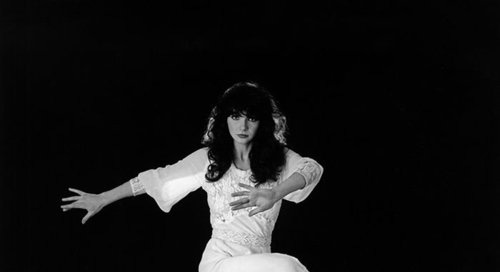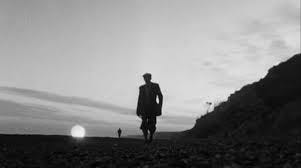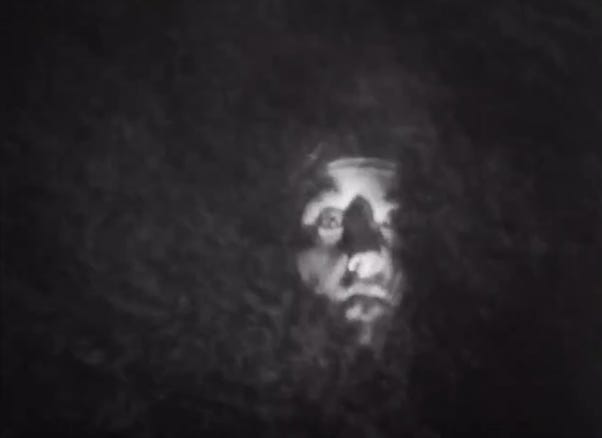Let Me in Your Window – a Ghost Sings in 'Wuthering Heights'
Horror Moments, Kate Bush Edition
[Spoilers: Wuthering Heights (1847)]
‘Horror Moments’ is a weekly series examining horror-inflected scenes and themes in unexpected places. The ‘moments’ are published weekly on Thursdays, and I share articles on the history of magic, theatre, storytelling, and more on Monday afternoons – don’t forget to subscribe.
Happy New Year and the warmest of welcomes to a brand new edition of horror moments. In 2024 I kicked this weekly tradition off with ten articles on horror motifs from the Wallace & Gromit series, followed by ten articles on horror in the plays of William Shakespeare. These unlikely source materials have taken us from blood-soaked discussions of the history of flaying and eye-gouging, to explorations of how a camera can become a monster, and how laughing at horror is cathartic.
Today we start a brand new set of ten articles, each beckoning us on a strange journey through the horror genre. This time, they’re all inspired by the work of our best living songwriter.
It’s horror moments, Kate Bush Edition.
If you don’t know who Kate Bush is, or perhaps only know a handful of her songs, don’t worry! No context is needed to enjoy this series. I’ll include a link to the song we’re discussing, and all the information you’ll need to enjoy its connection to the horror genre will be including in the article. If you want to find out more about Bush’s life and work, there is a biography called ‘Under the Ivy’ by Graeme Thomson, or you could watch this BBC documentary from 2014. Honestly, I think if she was chatting with me about this series she’d tell me not to worry about her personal life but to focus on the stories she has told in music. When asked in an interview why she chose such a vast and eclectic range of characters to write songs about rather than sing about her own life, she answered simply: ‘because they’re more interesting than me.’
We have to start off, of course, with one of Bush’s best-known songs, the masterpiece ‘Wuthering Heights’ (1978).
‘Wuthering Heights’ is endlessly fun to sing and dance along to (you can even do this en masse for ‘Kate Bush Day’ if you’re so inclined), but this is no light-hearted tale. It was inspired, not directly by the 1847 Emily Brontë novel but by the 1967 BBC adaptation which captured the brooding melancholy of the original and put stark imagery to the gothic text.
There’s something about the stylish creepiness of black and white storytelling in the sixties, necessitated by the limitations of most people’s televisions, that I don’t think we’ve quite recaptured since, an understanding of contrast and atmosphere, of how restraint and a simple visual can strike the eeriest chord. This is a year before the phenomenal Whistle and I’ll Come to You (1968) which is often cited as the best on-screen ghost story of all time and is likewise told in chilling monochrome.
The opening of the 1967 ‘Wuthering Heights’ is steeped in menace. It feels like a nightmare: the silhouette of a blighted tree is framed against the sky. A man wanders the moors alone, carrying a strange bundle. Faces peek from a single window illuminated on the façade of a pitch black house. And all the while a cruel wind rages.
We begin with the backstory, the day when little Catherine Earnshaw’s father brought an abandoned boy home to live at Wuthering Heights. This is Heathcliff, who will become Cathy’s soulmate, both of them wild and selfish. The first thing she does is slap him around the face.
The adaptation, unlike the book, tells the story in chronological order so we have to wait a long time to get to the famous window scene. Cathy has died given birth to another man’s child, but her presence has never left Heathcliff. Upon hearing news of her death he had prayed:
‘May you not rest as long as I am living. Be with me always. Take any form. Drive me mad, but do not leave me in this abyss where I cannot find you.’
And so one day, Cathy comes home.
This is how the book actually begins with Mr Lockwood, a visitor to Wuthering Heights, wandering in at the tail end of its story when Heathcliff is an old, embittered man. Given Cathy’s old room to sleep in, he finds her childhood diary. As he falls asleep with it grasped in his hand, he hears a knocking at the window.
He goes to open it, and for a moment it seems as if the coast is clear then suddenly—
A hand clasps his wrist.
“Let me go!” he pleads “who are you?”
“I’m Catherine Linton. I’ve come home. I lost my way on the moors. Let me in.”
Kate Bush’s song gives Cathy more lines which, when we remember that they are sung by a ghost, become particularly threatening:
“It gets dark, it gets lonely on the other side from you”
“I’m coming back love”
“I’m coming back to his side to put it right”
“Let me grab your soul away.”
And thus, one of Kate Bush’s best known and best loved songs, arguably one of the greatest pop songs of all time, springs directly from an iconic horror moment from British literature and tv. Did you know ‘Wuthering Heights’ before reading this article? Have you been singing along as I’ve discussed it? Even if you know and love Kate Bush already, you might be less familiar with some of the other tracks I’ll be exploring in this series. Perhaps you’ll discover new favourites. If you’re completely new to Kate Bush, it’ll be great to hear what you think of these songs; they are first and foremost stories, and Bush is a great horror storyteller.
I’ve got a hunch not everyone will recognise the next one. Until then,
Happy nightmares everyone!
P.S. Below is the original scene from the novel, just in case you wanted to compare. Wuthering Heights is sometimes remembered as a romance, but this is surely one of the best horror scenes in literature:
This time, I remembered I was lying in the oak closet, and I heard distinctly the gusty wind, and the driving of the snow; I heard, also, the fir bough repeat its teasing sound, and ascribed it to the right cause: but it annoyed me so much, that I resolved to silence it, if possible; and, I thought, I rose and endeavoured to unhasp the casement. The hook was soldered into the staple: a circumstance observed by me when awake, but forgotten. “I must stop it, nevertheless!” I muttered, knocking my knuckles through the glass, and stretching an arm out to seize the importunate branch; instead of which, my fingers closed on the fingers of a little, ice-cold hand!
The intense horror of nightmare came over me: I tried to draw back my arm, but the hand clung to it, and a most melancholy voice sobbed,
“Let me in—let me in!”
“Who are you?” I asked, struggling, meanwhile, to disengage myself.
“Catherine Linton,” it replied, shiveringly (why did I think of Linton? I had read Earnshaw twenty times for Linton)—“I’m come home: I’d lost my way on the moor!”
As it spoke, I discerned, obscurely, a child’s face looking through the window. Terror made me cruel; and, finding it useless to attempt shaking the creature off, I pulled its wrist on to the broken pane, and rubbed it to and fro till the blood ran down and soaked the bedclothes: still it wailed, “Let me in!” and maintained its tenacious gripe, almost maddening me with fear.
“How can I!” I said at length. “Let me go, if you want me to let you in!”
The fingers relaxed, I snatched mine through the hole, hurriedly piled the books up in a pyramid against it, and stopped my ears to exclude the lamentable prayer.
I seemed to keep them closed above a quarter of an hour; yet, the instant I listened again, there was the doleful cry moaning on!
“Begone!” I shouted. “I’ll never let you in, not if you beg for twenty years.”
“It is twenty years,” mourned the voice: “twenty years. I’ve been a waif for twenty years!”
Thereat began a feeble scratching outside, and the pile of books moved as if thrust forward.
I tried to jump up; but could not stir a limb; and so yelled aloud, in a frenzy of fright.
Horror moments are posted every Thursday and a wide variety of articles exploring the history of magic, theatre, storytelling, and more are published on Monday afternoons.









I love Kate Bush! And Wuthering Heights. Great essay. Wuthering Heights has always felt like more of a gothic horror than a romance to me. Looking forward to seeing which song comes next. Rather hoping you might tackle Army Dreamers at some point.
One of my all time favourite songs and books, thanks for the reminder that I should listen to some Kate Bush today!